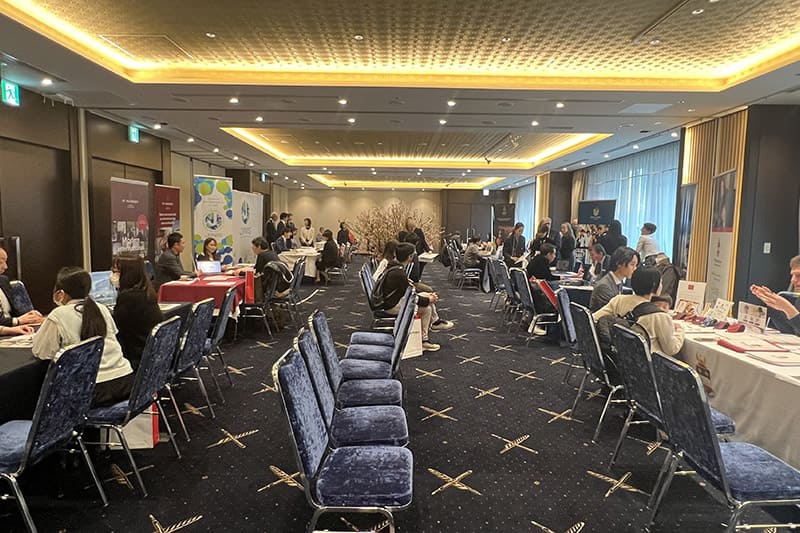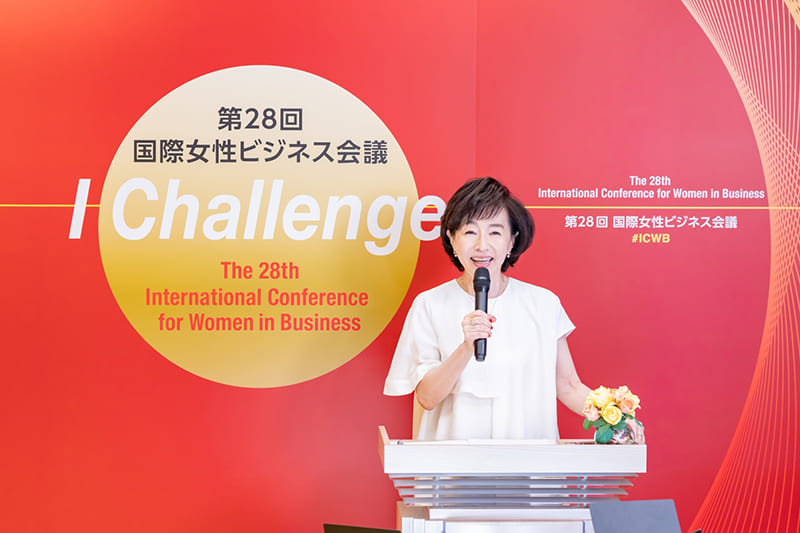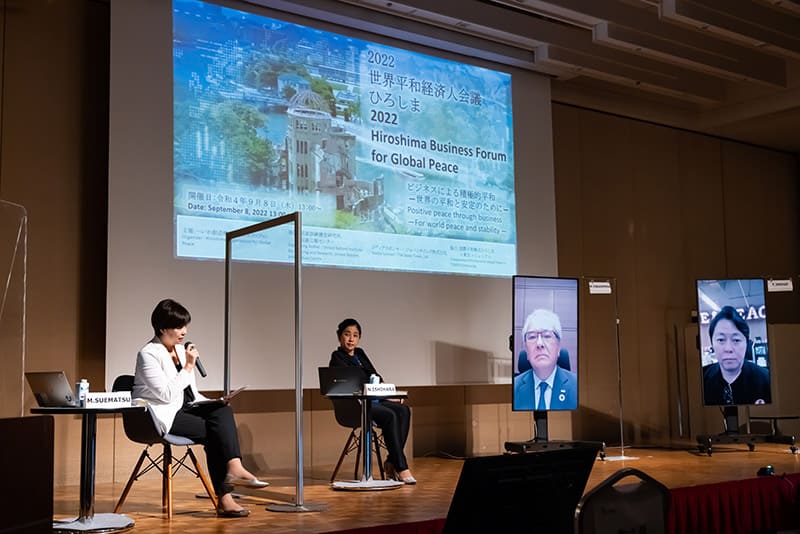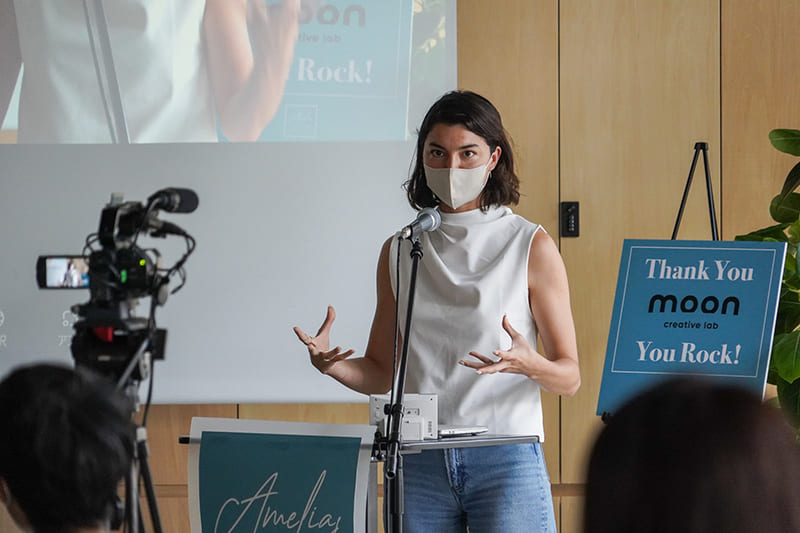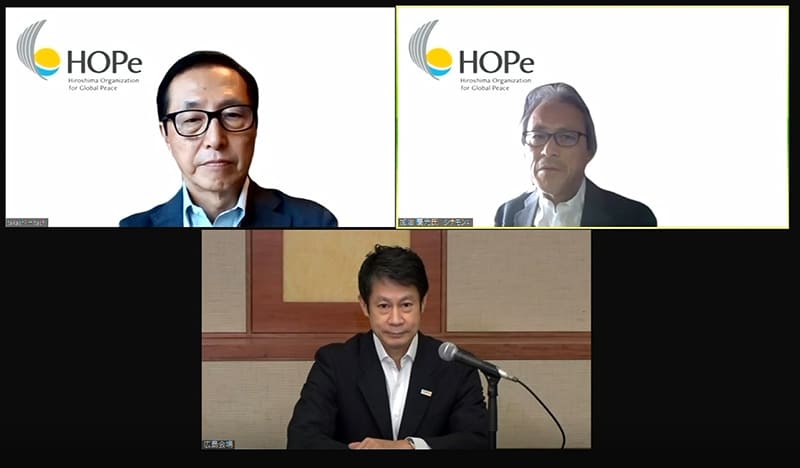April 15, 2022
Symposium aims to help Japan’s female entrepreneurs
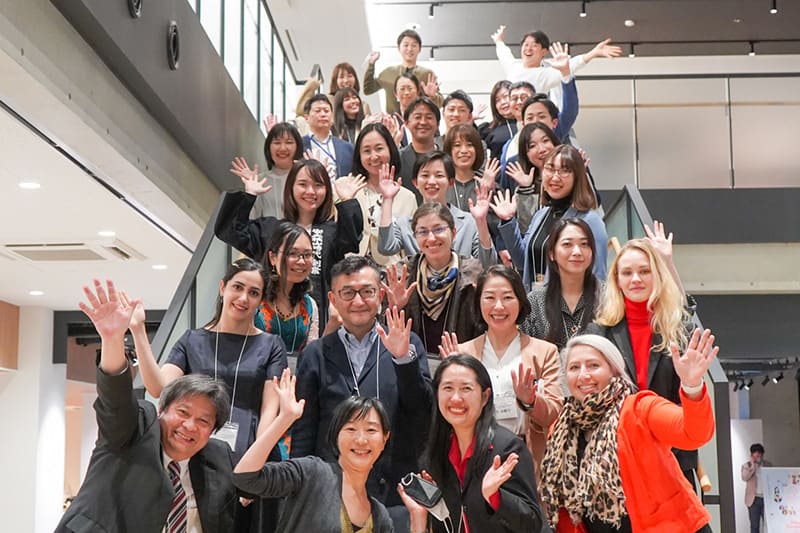
“Japan is one of the worst in terms of the gender gap,” professor Hidetoshi Tahara reminded listeners in his opening remarks at the Women in Entrepreneurship Education Symposium held at Hiroshima University on International Women’s Day, March 8.
The daylong symposium was part of the Effectuation Conference 2022 and included speakers such as renowned effectuation theory founder Saras Sarasvathy, Hiroshima Gov. Hidehiko Yuzaki and a host of business-oriented professionals students, recent graduates and academics, all with a strong interest in supporting more women choosing entrepreneurial pathways.
“Japan has an enormous opportunity to leverage the power of women by making entrepreneurship more accessible and attractive,” Tahara argued.
Entrepreneurial way of life
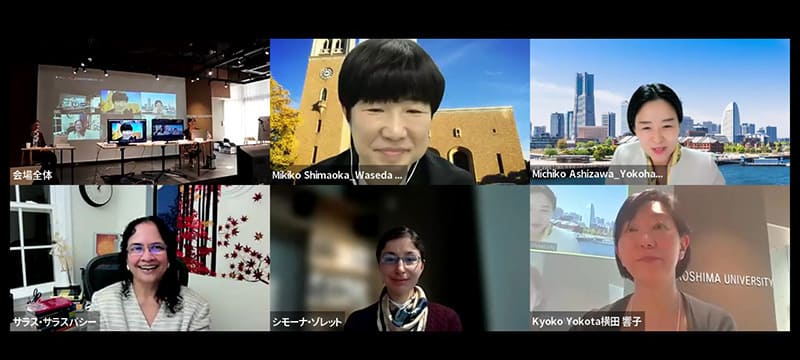
The symposium featured Sarasvathy, a professor at the University of Virginia Darden School of Business. Her scholarship is highly regarded, and she has had far-reaching influence within entrepreneurship education. Her talk focused on explaining effectuation theory and how leading an effectual life can be the start of novel entrepreneurial ideas.
Entrepreneurs look for cause-and-effect patterns in the world around them. A person can either work out the means to cause a goal to happen — this uses “causal reasoning” — or take the means at hand and then work out what goal to bring into effect with them, using “effectual reasoning.”
Living effectually can be done by anyone. It simply requires a perspective change: to think about what one already has — their “bird in the hand” — and what they can afford to lose while preserving their standard of living. “Living effectually,” she explained, “is working with what’s already within our control to co-create the future with self-selected stakeholders without having to predict it.”
To illustrate, Sarasvathy used a cooking metaphor. Cooking “causally,” she explained, is like following a recipe. “Following a recipe is safe, and the cost of failure is low. Whatever the causal cook set out to make, that is what they will end up with.”
On the other hand, by cooking “effectually” — by looking at what one already has available in the kitchen and improvising — the chances of creating something interesting and innovative are much higher. This effectual mindset can be applied to other parts of life. Sarasvathy contends that putting emphasis on experimentation, networking and being open to surprises is the disposition that is most likely to lead to successful entrepreneurship.
But is entrepreneurship only for people planning to start a business? “No,” Sarasvathy said, “even if we never start a company, just knowing that we have the key to do so is empowering. We should learn entrepreneurship so that it becomes a life option for us.” She believes this is particularly important for women, and especially so in Japan, which was in 47th place in the Mastercard Index of Women Entrepreneurs 2021 global rankings. When looking only at high-income nations, Japan was second-lowest, just above Saudi Arabia — a fact that was puzzling to Sarasvathy. “We can feel bad about it, but every country and culture are different,” she said. She suspected that one of the reasons for the low ranking could be that many jobs are already available in a developed country like Japan, so there is not as much drive to be an entrepreneur and start something new. “In developing countries, we see many entrepreneurs because there simply are no jobs for people, so you just have to work your own way through.”
Educating women in Japan

Directly related to the symposium’s theme, a panel discussion was held that outlined the current state of entrepreneurship education for women in Japan. The panel was moderated by professor Mikiko Shimaoka of Waseda University and Kanagawa University of Human Services. The panelists included professors Michiko Ashizawa of Yokohama City University, Kyoko Yokota of Ochanomizu University and Simona Zollet of Hiroshima University. Following the panelists’ remarks, Sarasvathy enlivened the discussion with a Q&A.
In Ashizawa’s view, one of the major issues with teaching entrepreneurship and producing world-class startups from Japanese universities is Japan’s “short history” with startups. Furthermore, she pointed out, “Many networks [in Japan] are male-centered, which makes it difficult for women to find confidence in mixed circles.” Despite these perceived difficulties, Ashizawa headed a business education program in Cebu in the Philippines, and most of her seminar students who have taken part are female. “I guess maybe that is because I am a female leader myself,” she explained.
At Hiroshima University, Zollet is trying to change students’ preconceived notions about entrepreneurship entirely. Drawing upon her background in environmental science and sustainable development, she encourages students to see entrepreneurship as something local, within reach, and even rural. “Entrepreneurship is not just about high-growth potential tech startups,” she insisted. Hiroshima is a well-known urban area, but the university itself is in the more rustic Higashihiroshima, east of the main city. This situates it perfectly for the type of awareness-raising that Zollet is doing. “We are trying to change the narrative of rural spaces from ‘spaces of decline’ to ‘spaces of possibility,’” she said. “The students make a project proposal and engage with the local community and businesses. This shows them that starting a business is not impossible — it can be done locally.”
Together with the other panelists, Zollet thought about how she could involve more female students. She said many entrepreneurship classes in Japan tend to discourage female student participation. “Many female entrepreneurs are motivated by changing things in the world rather than money or fame and so on, so that’s why we decided to frame the course around social and local issues.” she explained.
Startups in Japan

Hiroshima Gov. Yuzaki, himself an entrepreneur with experience working in venture capital in Silicon Valley during the late 1990s, is striving every day to make development of entrepreneurship a major initiative in the prefecture. Speaking on education, he said that the focus is still on skills but that “more fundamentally, what we think is more important. We need to encourage an action-taking attitude from a very young age.” From primary schools through to universities, the focus is being changed from “teaching” to “learning.” “This is related to critical thinking, interpersonal skills and how knowledge is used in interpersonal dynamics,” Yuzaki said.
Sarasvathy was also on hand to ask the governor questions and to promote dialogue. “Why do we teach entrepreneurship only for potential entrepreneurs?” she queried. “Imagine only teaching science to future scientists!” She said more needs to be done than “what is done at Silicon Valley — there was no idea of the middle class before the 18th century” and insisted that everyday people need access to entrepreneurship education.
Yuzaki outlined some of the critical issues facing policymakers regarding entrepreneurship, saying objectives need to be clear. “Is our objective to create jobs? One way is to create many small startups, but they may not survive. Another way is to focus on large startups, but how many of those will grow to become the next Google?” The governor explained that for the past 10 years, the policy has been encouraging as many startups as possible, although results have been limited. Both admitted that too many startups could lead to negative outcomes. “If everyone wants to start their own company, then who would work for them?” Sarasvathy asked rhetorically.
In Yuzaki’s estimation, Japan’s problem is that, unlike the United States, where Sarasvathy is based, it is difficult to find people who want to do a startup. Clearly, Japan and the United States are in different situations and have different cultures and value systems, but both agreed that more entrepreneurship in Japan would be highly desirable.

